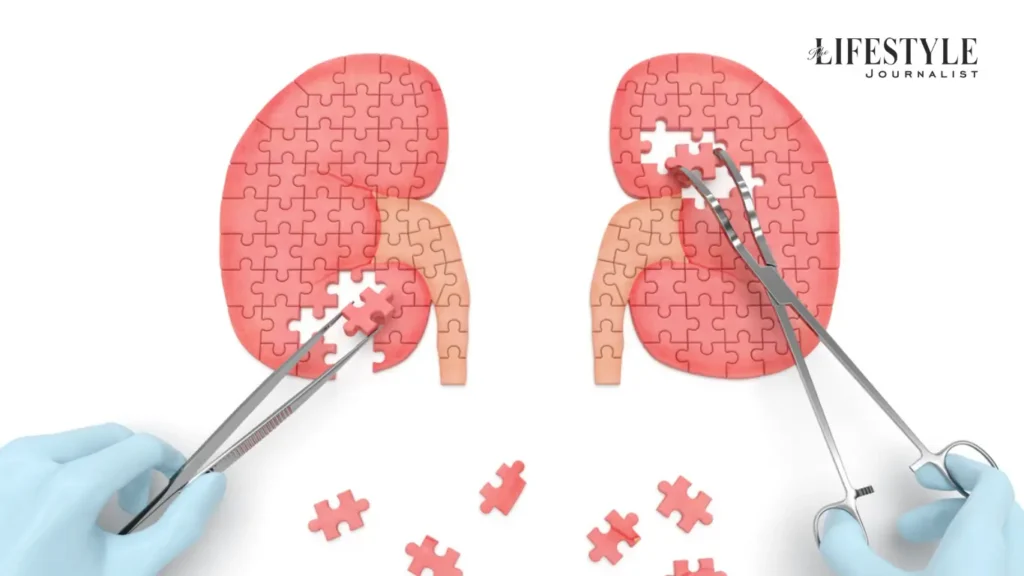Dr. Raja Ramachandran is a kidney doctor with over a decade of experience at the Department of Nephrology, PGIMER, Chandigarh.
He is also a researcher and academic teacher.
His research focuses on understanding and managing(clinical trials) proteinuric kidney diseases. He has published over 150 peer-reviewed articles in Nephrology.

The International Society of Nephrology awarded him the Young Investigator Award (Developing country- Top Clinical Science) for his clinical trials. Here are some interesting insights into kidney health by him.
What is the prime motive of celebrating World Kidney Day?
World Kidney Day (WKD) celebration is a global campaign primarily aimed at raising awareness of kidneys’ vitality and education, targeting a reduction in the frequency and impact of kidney disease and related problems.
Globally, we observe the WKD celebration on the second Thursday of March. In simple words, the objectives of the WKD celebration includes;
• Raising awareness about how amazing our kidneys are.
• Highlight how diabetes and hypertension are key risk factors for Chronic Kidney Disease (CKD).
• Encourage and exhibit screening of patients with diabetes and hypertension for CKD.
• Invigorate preventive behaviours.
• Educate all medical professionals about their crucial role in detecting and reducing CKD risk, particularly in high-risk populations (Diabetic and Hypertension cases).
• Stress the criticality of health authorities (local and national) to keep a tight rein on the CKD epidemic.
• To inform the public on kidney Transplantation as the best option for kidney failure and kidney donation as a life-saving initiative.
How can we keep our kidneys fit? Your top 3 tips
The top tips (in 3 different situations) to keep the kidney fit include:
Diabetes mellitus:
Diabetes mellitus is a global pandemic. The first tip is subjective to the presence or absence of diabetes mellitus. In a healthy individual, prevent the onset of diabetes mellitus by adhering to a strict dietary schedule and regular physical exercise.
In those with diabetes mellitus, ensure strict dietary compliance, regular physical exercise and medication to keep the blood glucose and blood pressure under tight control and annual screening for kidney disease (urine examination and serum creatinine tests).
Also read this: The Key to a Happy Relationship for couples- Dr. Jagat Ram
Hypertension:
Hypertension means high blood pressure. Prolonged poorly controlled blood pressure or acute-onset extreme blood pressure can adversely affect the kidney. So it is critical to keep the blood pressure under check-in patients with hypertension and undertake regular screening for kidney function.
Over-the-counter drugs:
The unrestricted use of untested complementary and alternative medicines (CAM) and over-the-counter (OTCs) medications are a crucial cause of kidney disease in India.
I strongly recommend against the use of OTC medications and unproven CAM.
Please suggest a healthy diet for a healthy kidney
Dietary restrictions pertinent to diabetes mellitus and hypertension should address kidney health in the long run. Patients with kidney diseases should refrain from consuming a diet rich in sodium.
In addition, we recommend against consuming a diet rich in potassium in cases with advanced kidney failure, as the failing kidneys cannot excrete excess potassium.
There are signals to suggest that a plant-based diet (1, 2 in place of animal-based food (mainly red meat) may prevent and retard the progression of chronic kidney disease.
What are the main reasons for kidney disorders?
The leading cause of kidney disease worldwide is diabetes mellitus.
The other reasons include uncontrolled or poorly controlled hypertension, proteinuric kidney diseases (glomerulonephritis), CAM or excessive use of OTCs like pain-killer medications, nephrolithiasis or kidney stones, tubulointerstitial nephritis and familial or hereditary kidney disease like cystic kidney disease and Alport syndrome.
How often should our kidney functions be checked? And what are the related tests?
The frequency depends on the presence or absence of kidney disease.
It is common for an otherwise healthy individual to screen for diabetes mellitus, blood pressure, and kidney functions at least in the fourth decade of life and repeat them at frequent intervals afterwards.
The kidney function tests include simple urine examination and blood tests (blood urea and serum creatinine).
How do the WKD campaigns raise awareness? Would you like to share any brief history?
On the WKD, Nephrologists (kidney doctors) worldwide create an awareness campaign educating the populace on kidney disease.
To name a few, they include screening the local community for diabetes, hypertension and kidney functions, didactic lectures and panel discussion on kidney diseases, and marathons to create an awareness of kidney diseases.
In the past, we at the Department of Nephrology conducted various marathons (From Sector 12 to Sukhna Lake) for raising awareness for kidney diseases, lectures and panel discussions by kidney experts addressing the public.
In the lecture theatres of PGIMER, Chandigarh, television and other mass media communications for raising awareness of kidney disease and conducting various blood and urine tests screening the community for kidney diseases.
What should one avoid to keep their kidney fit?
Poor glycaemic (blood glucose) and blood pressure control are critical for developing kidney ailments. The others include avoiding OTC (mainly pain killers/antibiotics) and untested CAM.
Read this: An Interesting Tale of a Self-Made Doctor: Dr. Sanjay K. Agarwal
Any recent trends or any recent developments in the field of nephrology that you would like to share with familiar readers?
Prevention is better than cure is apt in Nephrology.
For example, in patients with diabetes mellitus, we learn that a newer class of medications (SGLT inhibitors (3, 4)-excrete glucose in the urine and GLP analogues (5)- enhance insulin release from the pancreas) helps prevent kidney diseases. The aforementioned is besides reasonable blood glucose and blood pressure control.
· Similarly, in patients with kidney disease and high blood pressure, tight control of blood pressure reduces the rates of heart attack/ stroke and all-cause death.
Xenotransplantation (from animal (currently pig) to human): Transplantation of kidneys from a genetically engineered (to ward off genes detrimental to humans) pig suggest we have overcome significant barriers to human xenotransplantation (6). Honestly, newer knowledge is indeed required to optimize outcomes.

